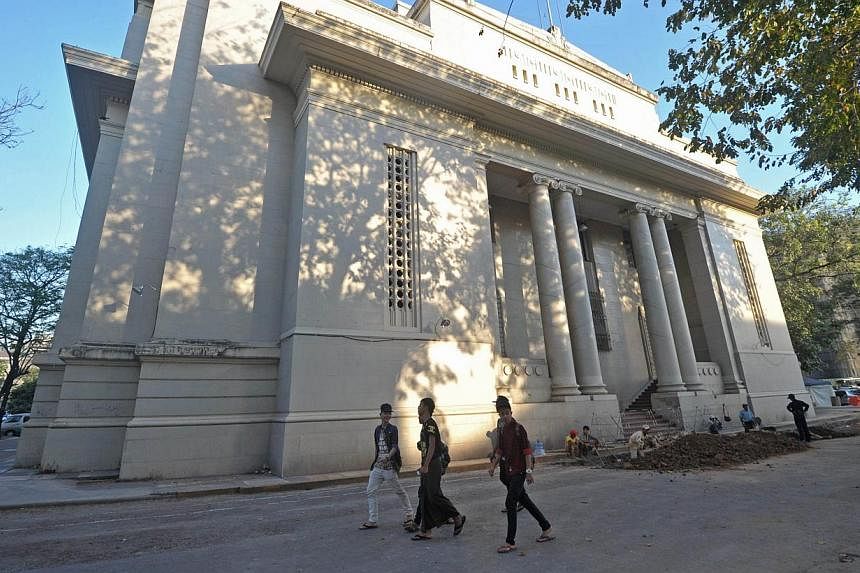Myanmar has emerged from decades of isolation to find itself at the heart of the world's most economically dynamic region. Today it counts among its neighbours not the inward-looking China and India of the 1960s, but the two largest rising powers.
The political changes in 2011 have been accompanied by gradual economic reforms that are helping Myanmar to consolidate the high growth rates of the past decade. The economy is expected to grow by a healthy 8 per cent in both 2014 and 2015, on the back of greater business confidence and investment, commodity exports, tourism and credit expansion.
For all of its recent successes, Myanmar remains one of Asia's poorest countries. Despite investment in recent years, infrastructure continues to limit Myanmar's potential. What is now needed is broad-based growth to alleviate poverty and broaden the opportunities available to its people. To achieve this, diversifying its economic base towards more value-added goods and services will be critical.
Myanmar's years of isolation have transformed the face of its economy. Sixty years ago, the country was one of the world's largest rice exporters, and manufactured garments in significant quantities for export to Europe and the United States. Today, however, natural gas, timber and beans account for nearly two-thirds of its exports. Over 40 per cent of its exports go to a single market, Thailand.
History tells us that growth built on selling raw commodities tends not to endure: Resource prices fluctuate and when prices fall, years of economic progress can be derailed. Over-reliance on a small number of trading partners leaves countries perilously exposed to shifts in their market conditions.
Other lessons from recent history are more positive.
Myanmar's neighbours prove that it is possible for developing countries to sustain growth rates high enough to transform the lives of their citizens within the space of a generation.
Whether in Vietnam, Thailand, or China, trade has played a critical role in improving resource allocation, shifting people and capital out of subsistence farming - which currently occupies more than half of Myanmar's population - and into more productive work.
Trade can play a special role in developing countries: Since firms dealing tradable goods and services tend to be more productive than those in other sectors, their success tends to make for a more productive economy overall.
Exporting a broader basket of value-added goods and services to a larger number of countries would make Myanmar's economy more resilient in the face of changes in commodity prices and external demand, and help generate jobs for its young and growing population. But it won't happen without proactive policymaking.
Myanmar's government will have to create a policy environment conducive to trade in employment-intensive sectors, identifying sectors in line with the country's evolving comparative advantages, and systematically removing internal barriers to export success.
With the development of its first National Export Strategy, which is being launched today in Naypyitaw, Myanmar takes a good step in this direction.
Put together by Myanmar's Ministry of Commerce, in consultation with stakeholders from across key sectors of the economy, and with support from the International Trade Centre (ITC), the strategy is a road map for achieving lasting, sustainable growth, rooted in diversification and value addition.
Its focus on enabling small and medium-sized enterprises (SMEs) to tap international markets will help create the better jobs women and youth need to share more fully in their nation's growth.
Importantly, the strategy will serve as a tool for the government - and its partners - to ensure that economic development aid is directed towards Myanmar's own priorities for maximum results.
The strategy identifies sectors with great export potential, from beans, pulses and oilseeds, rice, fishery products, textiles and garments, and rubber to forestry products.
Tourism is another sector that could generate revenues for rural communities. This is why the ITC, in collaboration with the government and with the support of the Centre for the Promotion of Imports from developing countries (CBI) of the Netherlands, is supporting the tourism sector in Kayah state. For each of these sectors, the strategy identifies the investments needed to build supply-side capacity and facilitate export success.
The plan also points to specific reforms and institution-building required to redress economy-wide constraints on export competitiveness, such as inadequate finance for entrepreneurs, poor quality control, insufficient market information and weak trade promotion, and outdated customs laws. It also suggests strategies for improving access to key markets such as Asean, China and the United States.
The "aid for trade" interventions proposed in the National Export Strategy represent investments that promise to yield high development returns.
Trade, we should never forget, is simply a means towards better livelihoods.
For a young woman in Kayah state, a job in the tourism industry could represent dramatically better opportunities for herself and her family. Better access to credit could mean the difference between success and failure for a would-be textile entrepreneur in Yangon.
For Myanmar, defining the terms of its economic engagement with the rest of the world - as done in this National Export Strategy - is an important part of shaping its own destiny.
Arancha Gonzalez is the executive director of the International Trade Centre, a Geneva-based organisation under the World Trade Organisation and the United Nations Conference on Trade and Development. U Win Myint is Myanmar's Minister for Commerce.

